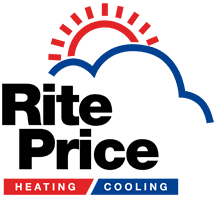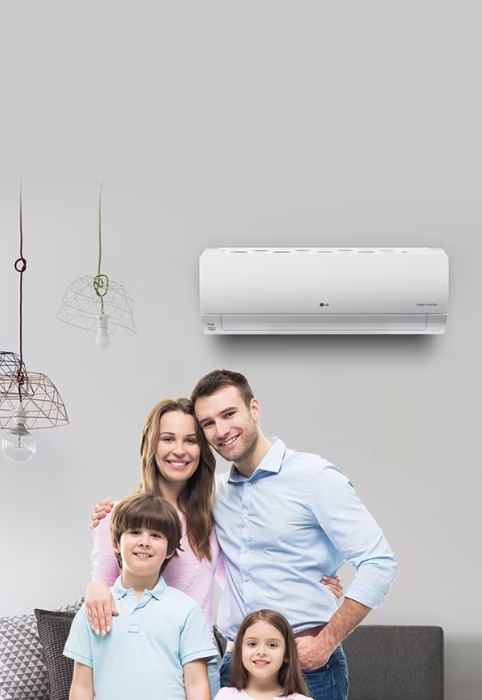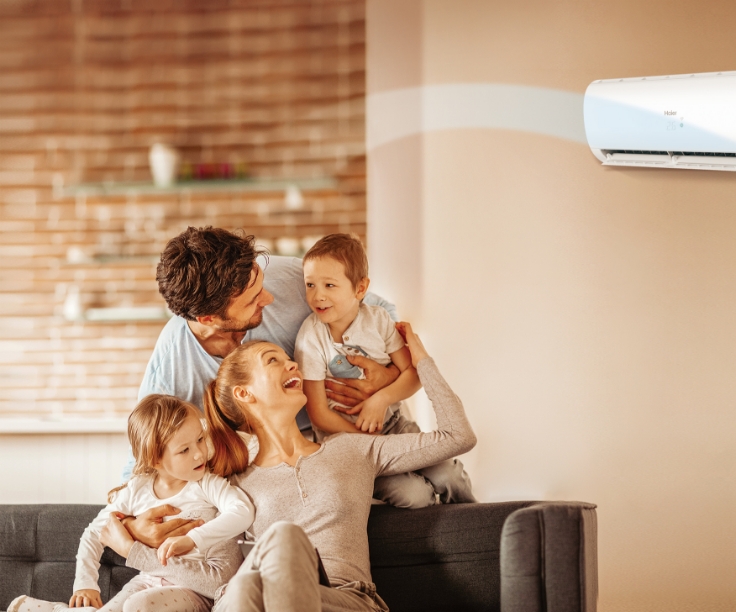Heat Pump vs. Gas Hot Water: A Cost Breakdown
Cost Comparison of Heat Pump and Gas Hot Water Systems in Victoria and South Australia
As Australians become more energy-conscious and energy prices continue to rise, homeowners in Victoria and South Australia are increasingly evaluating their household systems for efficiency and affordability. One of the key comparisons being made is heat pump vs gas hot water systems, as hot water remains one of the most energy-intensive appliances—accounting for up to 30% of a household’s energy bill.
This blog post explores the cost comparison between heat pump and gas hot water systems in the states of Victoria and South Australia. It includes insights into upfront and long-term costs, rebates, and real-world factors that influence the overall value. Whether you’re considering gas hot water heating in Adelaide or weighing the benefits of heat pumps in Victoria, this guide is designed to help you make the most informed and cost-effective decision.
Why Hot Water System Choice Matters
Choosing the right hot water system is about more than just upfront price. Ongoing costs, energy efficiency, and available government rebates all play critical roles in determining long-term value—making the heat pump vs gas decision increasingly important for homeowners.
In particular:
- Heat pumps in South Australia and Victoria are gaining traction due to their low energy consumption and generous rebates.
- Gas hot water heaters in Victoria remain a popular choice for homeowners seeking low initial costs and fast water heating.
- The dynamic between installation cost and running cost is central to understanding heat pump vs gas system value over time.
Upfront Costs: Heat Pumps vs. Gas Hot Water Heaters
Heat Pumps
Heat pump systems generally involve a higher initial purchase price, typically ranging between $2,200 and $6,800, depending on brand, tank size, and efficiency.
- Budget models: ~$3,000 using propane refrigerant.
- Premium CO₂ models: ~$5,000 with enhanced efficiency and eco-friendliness.
- Heat pumps in Victoria and South Australia are widely available and priced similarly across both states.
Gas Hot Water Heaters
- Gas storage systems: $1,000 to $7,000 depending on tank size and energy rating.
- Gas instantaneous systems: $700 to $3,000.
- For example, a Rheem 170L gas storage system may cost around $1,530 supply-only.
- Gas hot water heaters in Victoria are competitively priced and commonly used as replacements.
Installation Costs
Installation expenses are crucial when comparing system affordability. Here’s a breakdown:
Heat Pumps
- Require both a licensed plumber and electrician.
- New installations or gas-to-heat-pump upgrades may involve additional electrical work.
- Typical installation cost: $1,500 to $3,000
- In some cases: $3,000 to $5,000 if upgrades are extensive
- Basic electric-to-heat-pump replacements: $600 to $800
Average total installation costs:
- Victoria: $2,500 to $7,500
- South Australia (Adelaide): $900 to $2,500 (slightly lower on average)
Example: A Victorian homeowner reported a $5,500 quote for a heat pump replacement versus $1,700 for a new gas system.
Gas Hot Water Systems
- Simple gas-to-gas replacement: $450 to $850
- Complex installs or electric-to-gas conversions: $1,500 to $3,000+
- Instantaneous gas systems may cost more to install depending on plumbing and wall-mounting needs.
Ongoing Running Costs
Heat Pumps
Heat pumps are significantly more efficient than gas systems. They work by extracting heat from the air, resulting in energy savings of up to 70%.
Here’s a look at annual running costs in Victoria based on household size:
Estimated Annual Running Costs (Victoria)
- One Person
- Heat Pump (Peak): $205
- Heat Pump (with Solar): $140
- Heat Pump (Off-Peak): $150
- Two People
- Heat Pump (Peak): $295
- Heat Pump (with Solar): $205
- Heat Pump (Off-Peak): $220
- Three People
- Heat Pump (Peak): $365
- Heat Pump (with Solar): $250
- Heat Pump (Off-Peak): $270
- Four People
- Heat Pump (Peak): $435
- Heat Pump (with Solar): $300
- Heat Pump (Off-Peak): $325
Gas Hot Water Heating in Adelaide & Victoria
Gas systems vary in efficiency depending on whether they are storage or instantaneous:
- Gas Storage System (One Person): ~$445/year
- Gas Instantaneous (One Person): ~$235/year
- Gas Storage (Four People): ~$780/year
- Gas Instantaneous (Four People): ~$655/year
Daily Running Cost in Adelaide
- Gas hot water heating in Adelaide: $2.95 – $3.15/day
- Electric hot water system (for comparison): $4.91 – $5.11/day
Even high-efficiency gas systems (e.g., 7-star rated) have higher running costs than a well-rated heat pump.
Government Rebates & Incentives
Rebates can dramatically reduce the net upfront cost of installing heat pumps.
Federal Rebate (STCs)
- Eligibility: Most systems under 425L
- Value:
- Victoria: ~$612 – $720
- South Australia: ~$750 – $1,050
Victoria-Based Rebates
- Victorian Hot Water Rebate: Up to $1,000
- Victorian Energy Upgrades (VEECs): ~$500 – $630 for switching from gas
- Solar Victoria Heat Pump Rebate: 50% off up to $1,000 after other rebates
South Australia Rebates
- SA REPS Rebate:
- Up to $1,300 for disconnecting from gas
- $300 – $450 for homes still connected
- City of Adelaide Rebate: Up to $1,500 for eligible addresses
Total 10-Year Cost Comparison
Victoria (4-person household)
- Heat Pump
- Upfront: $6,500
- Rebates: $3,242
- Net Upfront: $3,258
- 10-Year Running Cost: $4,350
- Total Cost: $7,608
- Gas Storage
- Upfront: $4,000
- Running: $7,800
- Total Cost: $11,800
- Gas Instantaneous
- Upfront: $2,700
- Running: $6,550
- Total Cost: $9,250
South Australia (4-person household)
- Heat Pump
- Upfront: $6,500
- Rebates: $3,850
- Net Upfront: $2,650
- Running: $4,350
- Total Cost: $7,000
- Gas Storage: $11,800
- Gas Instantaneous: $9,250
Key Factors to Consider
System Size & Usage
- Larger tanks or high-use households require more energy
- Heat pumps scale more efficiently with usage
Energy Prices
- Rising gas prices give heat pumps a long-term edge
- Solar integration enhances heat pump savings
Location & Climate
- Heat pumps in South Australia and Victoria are effective in temperate climates
Environmental Impact
- Heat pumps use renewable thermal energy, reducing CO₂ emissions
Pros and Cons Summary
✅ Heat Pumps (Victoria & SA)
Pros:
- Lower long-term cost
- Excellent rebate availability
- Eco-friendly and solar-compatible
- Quiet, reliable, and modern
Cons:
- Higher upfront and installation cost
- Requires suitable outdoor space and airflow
✅ Gas Hot Water Heaters (Victoria & Adelaide)
Pros:
- Lower upfront cost
- Fast water heating
- Familiar system for many homes
Cons:
- Rising gas prices
- Higher annual costs
- Fewer incentives
- Greater emissions
Final Recommendations
Choosing the right system comes down to what you value most:
Choose a Heat Pump if:
- You want lower long-term costs
- You have (or plan to install) solar power
- You’re environmentally conscious
- You qualify for rebates in Victoria or South Australia
Stick with Gas Hot Water if:
- You’re focused only on upfront cost
- Your existing system is already gas and recently installed
- You have no solar and very low hot water use
In many cases, particularly for families or solar-powered homes, heat pumps in Victoria and South Australia deliver the best return on investment.
Next Steps: Get the Right System for Your Home
Still unsure which system suits your home and budget?
Compare tailored quotes from local providers
Use your postcode to check rebate eligibility
Get advice on integrating with solar for maximum savings
Click here to Book Your Free Hot Water System Consultation Today








